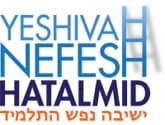The Midrash in Zos HaBrocha says
אָמַר רַבִּי אֶלְעָזָר אֵיזוֹ הִּיא הַבְרָכָה שֶבֵרַךְ משֶה בַתּוֹרָה תְּחִּלָה, בָרוּךְ אַתָּה ה’ אֱלֹהֵינוּ מֶלֶךְ הָעוֹלָם אֲשֶר בָחַר בַתּוֹרָה הַזאֹת וְקִּדְשָהּ ורָצָה בְעוֹשֶיהָ . וְלאֹ אָמַר בַעֲמֵ ליהָ, וְלאֹ אָמַר בְהוֹגֶיהָ, אֶלָא בְעוֹשֶיהָ, בְאֵלוּ שֶהֵ ן עוֹשִּין אֶת דִּבְרֵי תוֹרָה…אָמַר הַקָדוֹש בָרוּךְ הוּא לְיִּשְרָאֵל…כָל מִּי שֶמִּתְיָרֵא אוֹתִּי וְעוֹשֶה דִּבְרֵי תוֹרָה, כָל הַחָכְמָה וְכָל הַתּוֹרָה בְלִּבוֹ, מִּנַיִּן, שֶנֶאֱמַר רֵאשִּית חָכְמָה יִּ ראַת ה’ שֵכֶל טוֹב יִּרְאַת ה’ הִּיא חָכְמָה וגו לְכָל עֹשֵיהֶם יִּרְאַת ה’ טְהוֹרָה עוֹמֶדֶת לָעַד
Upon completion of the Torah, Moshe Rabbeinu made a special Birchas HaTorah. Interestingly, it is different than our nusach. What is this emphasis on the practical fulfillment of the Torah over learning it? We know Pirkei Avos speaks very negatively about one who learns but does not fulfill Torah, but we also know Talmud Torah Kineged Kulam?
Many a Jewish parent has felt anxiety about their kid’s connection to Torah. Even the Brisker Rav is said to have cried and fasted for his children to grow up to be matzliach and have a connection to Torah. There are no guarantees in chinuch, no perfect method or solution. Perhaps Chazal are telling us here that we need to focus on the implementation of torah through action in our daily lives, living Torah, using it practically and hands on. Through this, the Midrash continues, Wisdom in Torah will take care of itself. Which makes sense. For someone who lives their life according to the ways of the Torah will inevitably delve into it more to better fulfill it. This is especially true of children and teenagers, whose minds and personalities are still developing into their 20s. Let’s remember, chazal suggested Gemara learning to begin at 15! Obviously, we live in a different world and Mechanchim have taken into account other considerations, but the nature of a child and teenager remains the same, academics and abstract thinking are difficult and only beginning to be developed at this age. Emphasizing the importance of Massim to our children ensures they remain connected until they are mature enough to approach learning Torah, each in their own time and way. We all remember our children coming home excited to do mitzvahs, say brochos etc., obviously that wears off to some extent, but in most cases (in my experience) those kids whoe begin to find keeping mitzvos “difficult” do so around the age when they begin Gemara learning and the focus from their parents and Rebbeim becomes all about the academic side of the Torah. In the morning Birchas HaTorah we add a tefilah (VeHaArev Na) that the words of torah should be sweet to us and our children and that we and our children should “Know your name” (Yodei Shimecha) and “Learn your Torah” (Lomdei Torasecha Lishma). Hashem’s different names are associated with his ACTS. We “know his name” through emulating his middos and these acts, by acting like a tzelem elokim. Through our actions, keeping the mitzvos, we emulate Hashem. It is only then, the tefilah continues, that we become “Learners of Torah Lishma”. Perhaps it is not so much that one is more important than the other, but that keeping the Torah leads to learning it. Interestingly, the Gemara says “Gadol Limud HaTorah Shemivia Lidei Maaseh”. Learning leads to action. Yet here we see action leads to learning. The first step is doing, keeping the Torah. That leads to inspired learning, which in turn leads to more doing, and creates a positive cycle of growth throughout life. Perhaps this is what the Midrash means when it ends with the Pesukim “The beginning of Chochma (learning torah) is Yirahs Hashem (keeping mitzvos)” and “Yiras Hashem is Chochma”. There is no contradiction here, Yira leads to Chochma which in turn inspires more Yira and leads to more Chochma etc.
Kids need hands on experience, it fosters feelings of accomplishment and builds their self-esteem. People retain in their lives what makes them feel good and builds them, not what makes them feel like failures. Obviously, with the right encouragement and support, every child and teen can succeed in learning, right now in their current situation in school. However, Chazal seem to be looking at the big picture, the “long game”. Let us continue to help our children learn, but not forget to include them in and create opportunities for them to do maasim tovim and mitzvos, to make the Torah a living thing, practical and relevant, until such time as they are mature and able to appreciate its true depth beauty.
Gmar Tov, Shabbat Shalom, Good Shabbos
Rabbi Ari Deutscher MSW
Menahel

Leave A Comment